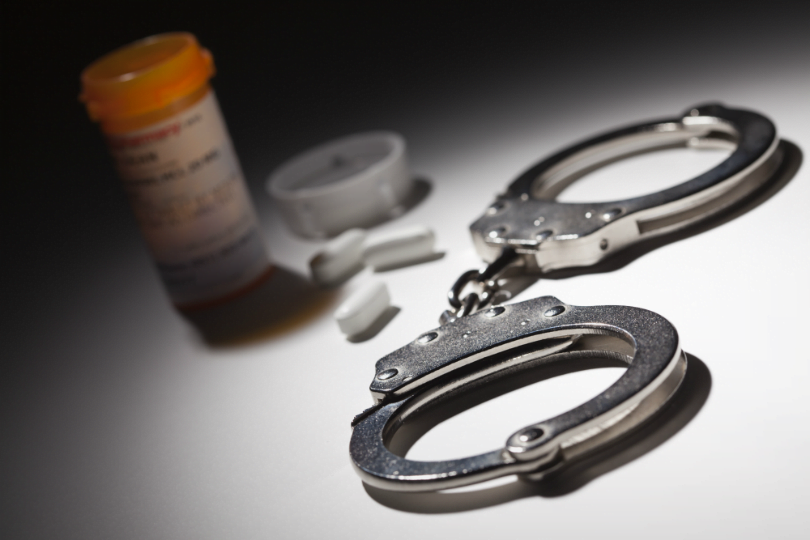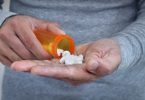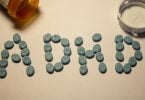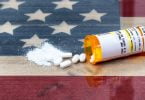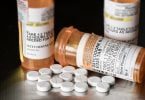On average, 115 Americans die from an opioid overdose every day.
Prescription drug addiction has become an epidemic. An epidemic that is ravaging the United States and much of the world.
Medicine, especially medicine prescribed by a healthcare professional, should be healing. Taking it can be a normal part of any daily routine.
So, it’s no surprise that prescription drug abuse often goes undetected. That is until the crushing effects of withdrawal or overdose set in.
But, there are ways to identify and prevent prescription drug addiction.
Do you think that either you or a loved one might be struggling with chemical dependency? Here are several physical and psychological warning signs you can look out for.
What’s Causing It?
Experts are still unsure of the exact cause of the opioid epidemic.
One factor is the sheer number of drugs that are being prescribed by healthcare professionals. A number that has skyrocketed in recent years.
The number of prescription opioids sold in the United States quadrupled between 1999 and 2010.
In 2013, healthcare providers in America wrote enough prescriptions for every adult in the country to get their own bottle.
In 2014, roughly 2 million Americans were either dependent on or abused prescription opioids.
This recent flood of drugs may not have caused the initial problem. But, it has exacerbated it.
Some patients are more susceptible to addiction either through genetic or hereditary factors. But, due to the highly addictive nature of most of these drugs, any patient runs the risk of addiction.
One in four patients undergoing long-term opioid treatment struggles with opioid addiction.
General Addiction Warning Signs
Symptoms of addiction can vary depending what type of drug you or your loved one have been prescribed.
But, there are a few physical and mental warning signs that can appear in almost any case of chemical dependency.
General psychological symptoms of addiction can include erratic behavior and mood swings.
These symptoms may also include a withdrawal from interests, a change in work performance. Loss of interest in outward appearance could also be a sign of chemical dependency.
Psychological symptoms can be more difficult to spot. If your loved one has recently displayed a drastic shift in personality, you may want to consider seeking help.
Chemical dependency can also produce a few noticeable physical symptoms. These symptoms can include but are not limited to, excessive sweating and trouble sleeping.
Besides those symptoms, chemical dependency can produce a few other behavioral warning signs.
These behavioral warning signs can include making frequent trips to the doctor. Visiting several different or new doctors can also be a sign.
Those addicted to prescription drugs also often “lose” prescriptions in order to ask for a replacement.
They can even include crushing or breaking pills.
Taking larger than prescribed doses could be a sign of chemical dependency. As can taking doses more often than was initially prescribed.
Finally, using prescription drugs for anything other than what they were prescribed was for could also be a sign of addiction.
Drugs Most Susceptible to Abuse
Not all prescription drugs are the same.
There are three different types of prescription drugs that are more likely to become abused. These types include stimulants, opiates, and tranquilizers or sedatives.
Out of these three opiates, tranquilizers and sedatives are the easiest to get addicted to.
These drugs, when used over a period of time, can cause long-lasting damage to your brain. They cause feelings of instant relief of pain or distress, they can confuse your brain’s reward system.
This often leads those who have been prescribed these drugs to turn to them to take care of problems other than their initial intended use.
It is also possible to build up a tolerance to these kinds of drugs.
When this happens, people will often begin upping their dosage without consulting their doctor. This is done to achieve that feeling of instant relief that they became accustomed to.
Sedatives, opiates, and stimulants are all designed to do different things. Because of this, they all can produce different physical and mental symptoms when they are abused.
Opiate Abuse Warning Signs
Opiates are commonly used to treat chronic or severe pain. They are also one of the most abused prescription drugs.
Psychological symptoms of opiate abuse can include depression and disorientation.
Opiate abuse can also cause such physical symptoms as a rapid drop in blood pressure and shortness of breath.
Tranquilizer Abuse Warning Signs
Sedatives and tranquilizers are often prescribed to treat sleep disorders and anxiety.
Common mental symptoms of the abuse of tranquilizers or sedatives can include confusion and failing memory. Poor judgment can also be a sign of abuse.
Physical symptoms of tranquilizer abuse include drowsiness or a seemingly intoxicated state. Other symptoms can include unsteady movements and involuntary movements or tics.
Stimulant Abuse Warning Signs
Stimulants are usually prescribed to treat Attention Deficit Hyperactivity Disorder. They are frequently abused by students or those with stressful or highly demanding jobs.
Stimulant abuse can produce such psychological symptoms as extreme irritability and hostility. Paranoia and insomnia can also be caused by stimulant abuse.
Common physical symptoms of stimulant abuse can include high blood pressure. A higher than normal body temperature and unexplained weight loss could also be attributed to stimulant abuse
Stimulant abuse can even be the cause of more extreme symptoms such as seizures and cardiac failure.
Healing Chemical Dependency
Prescription drug addiction has become an epidemic, but it’s not invincible.
And while it is possible to beat chemical dependency, it can be a very long and difficult struggle.
The first step in that fight is accepting and understanding that you or your loved one has an addiction and that it is time to seek out professional help.
If you’re worried that either you or a loved one have become addicted to prescription drugs, don’t worry. We’re here to help.
There are hundreds of rehab centers across the country that specialize in chemical dependency. These centers can provide you or your loved one the tools you need in order to combat addiction.
We specialize in helping individuals find centers that will fit their unique needs. So you can get off the track of chemical dependency and back to your life.

